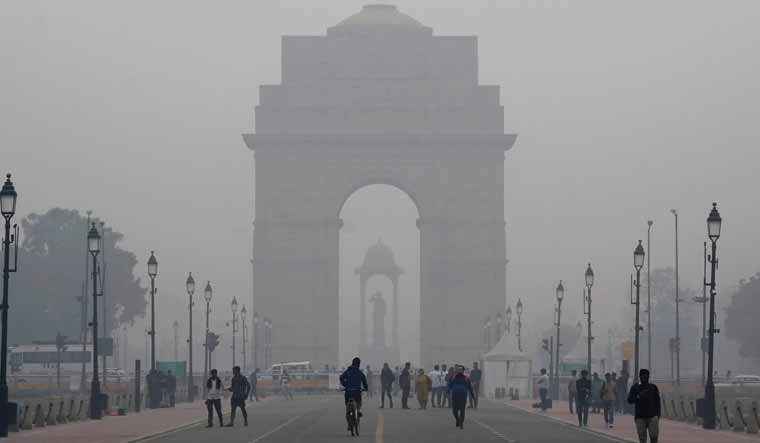A thick layer of haze engulfed Delhi on Sunday morning as the AQI dipped to 460 at 7 am on Sunday. The unfavourable wind conditions, particularly calm winds during the night, have pushed the pollution levels up.
Under the Centre's air pollution control plan, all emergency measures, including a ban on polluting trucks, commercial four-wheelers, and all types of construction, have been enforced in the National Capital Region after the AQI crossed the 450 mark.
An AQI between 0-50 is considered "good", 51-100 "satisfactory", 101-200 "moderate", 201-300 "poor", 301-400 "very poor" and 401-500 "severe". An AQI above 500 falls in the "severe plus" category.
Besides, the concentration of PM2.5, fine particulate matter capable of penetrating deep into the respiratory system and triggering health problems, exceeded the government-prescribed safe limit of 60 micrograms per cubic metre by seven to eight times at multiple locations throughout Delhi-NCR. It was 80 to 100 times the healthy limit of 5 micrograms per cubic meter set by the WHO.
Many people complained of respiratory issues, with some pointing out a burning sensation in their eyes. "The situation of pollution is extremely poor. It is difficult to breathe these days. Several people used to come to Lodhi Garden earlier, but now only 10% of people are coming here. Pollution is at its maximum this year," a resident of Delhi told ANI.
Schools shut
All primary schools in the national capital will remain shut till November 10 in view of rising pollution levels in the city, Delhi Education Minister Atishi announced on Sunday. For classes 6 to 12, schools have the option of teaching online. "As pollution levels continue to remain high, primary schools in Delhi will stay closed till November 10. For Grades 6-12, schools are being given the option of shifting to online classes," Atishi said on X.
The Delhi Pollution Control Committee (DPCC) has said that the capital experiences peak pollution from November 1 to November 15 when the number of stubble-burning incidents in Punjab and Haryana increases. As of Saturday, smoke from stubble burning accounted for 24.5 per cent of the PM2.5 pollution in Delhi. It was 35 per cent on Friday, according to a numerical model-based system developed by the Pune-based Indian Institute of Tropical Meteorology.
(With inputs from PTI)


